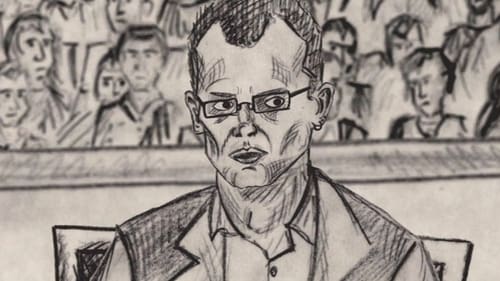
Cinematography
Russian Oligarch Igor is as rich as he is extravagant: He plans to build his brand new villa right on a world famous and preserved bridge in the middle of Vienna! To bribe all the politicians, he needs the help of his interpreter Nadja. But Nadja has her own idea of what to do with all the bribe money.

Director of Photography
Environmentally friendly electric cars, sustainably produced food products, fair production processes: Hurray! If everything the corporations tell us is true, we can save the world through our purchasing decisions alone! A popular and dangerous lie. In his new documentary film, Werner Boote shows us, together with environmental expert Kathrin Hartmann, how we can protect ourselves. Down with green lies!

Editor
The documentary filmmaker Djordje Cenic sets out on an autobiographical journey that starts in the "guest workers' milieu" of the Austrian regional capital Linz in the 1970s and takes him to his family's war-torn ancestral village in Croatia. In comically absurd as well as tragic episodes describing small victories and major defeats, homesickness and class distinctions, the film offers - using home movies, photographs and current professional footage - deep insights into the filmmaker's family history. It is an attempt to illustrate the balancing act between "up here" (Austria) and "down there" (Yugoslavia/Croatia) that characterizes generations of guest workers. Directed by Djordje Cenic and Hermann Peseckas. - Written by Djordje Cenic

Camera Operator
Vienna, December 2012: A small group of young Afghans and Pakistanis occupy the Votive Church, the largest neo-Gothic church in the country. After accelerated processing, their applications for asylum were turned down, though they had fled extremely dangerous conditions in their home countries, witnessing schools being burned down, beheadings by religious fanatics and murders of their relatives.

Director of Photography
Elektro Moskva is an essayistic documentary about the Soviet electronic age and its legacy. The story begins with the inventor of the world's first electronic instrument, Leon Theremin, unveiling the KGB's huge pile of fascinating devices, some of which were musical. They all came into existence as a by-product of a rampant defense industry. Nowadays, those aged and abandoned 'musical coffins', as solidly made as a Kalashnikov, are being recycled and reinterpreted by the post-Soviet generations of musicians, sound collectors and circuit benders. The story of the Soviet synthesizers as an allegory to the everyday life under the Soviet system: nothing works, but you have to make the best out of it. An electronic fairy tale about the inventive spirit of the free mind inside the iron curtain- and beyond.

Producer
Elektro Moskva is an essayistic documentary about the Soviet electronic age and its legacy. The story begins with the inventor of the world's first electronic instrument, Leon Theremin, unveiling the KGB's huge pile of fascinating devices, some of which were musical. They all came into existence as a by-product of a rampant defense industry. Nowadays, those aged and abandoned 'musical coffins', as solidly made as a Kalashnikov, are being recycled and reinterpreted by the post-Soviet generations of musicians, sound collectors and circuit benders. The story of the Soviet synthesizers as an allegory to the everyday life under the Soviet system: nothing works, but you have to make the best out of it. An electronic fairy tale about the inventive spirit of the free mind inside the iron curtain- and beyond.

Writer
Elektro Moskva is an essayistic documentary about the Soviet electronic age and its legacy. The story begins with the inventor of the world's first electronic instrument, Leon Theremin, unveiling the KGB's huge pile of fascinating devices, some of which were musical. They all came into existence as a by-product of a rampant defense industry. Nowadays, those aged and abandoned 'musical coffins', as solidly made as a Kalashnikov, are being recycled and reinterpreted by the post-Soviet generations of musicians, sound collectors and circuit benders. The story of the Soviet synthesizers as an allegory to the everyday life under the Soviet system: nothing works, but you have to make the best out of it. An electronic fairy tale about the inventive spirit of the free mind inside the iron curtain- and beyond.

Director
Elektro Moskva is an essayistic documentary about the Soviet electronic age and its legacy. The story begins with the inventor of the world's first electronic instrument, Leon Theremin, unveiling the KGB's huge pile of fascinating devices, some of which were musical. They all came into existence as a by-product of a rampant defense industry. Nowadays, those aged and abandoned 'musical coffins', as solidly made as a Kalashnikov, are being recycled and reinterpreted by the post-Soviet generations of musicians, sound collectors and circuit benders. The story of the Soviet synthesizers as an allegory to the everyday life under the Soviet system: nothing works, but you have to make the best out of it. An electronic fairy tale about the inventive spirit of the free mind inside the iron curtain- and beyond.

Cinematography
At 6am on May 21, 2008, armed police burst into the apartment of Austrian dog trainer and animal-rights activist Sabine Koch, arresting her. After three months in custody, Koch, together with 12 other animal-rights activists, went on trial. They were charged with being members of a criminal organisation and therefore breaching article 273a of the Austrian Penal Code, introduced in the wake of 9/11. The article’s intention is to allow the state to stifle terrorist activity. Years of observation, house searches, and undercover agents – the police left no stone unturned in its bid to prove the animal-rights activists’ guilt. The sobering result: five million Euros worth of investigation, no proof and a great deal of scepticism towards the Austrian justice system – and democracy itself. Filmmaker Igor Hauzenberger captures one of the highest profile cases this alpine republic has ever seen.

Cinematography
An Austrian documentary, released in 2007.








